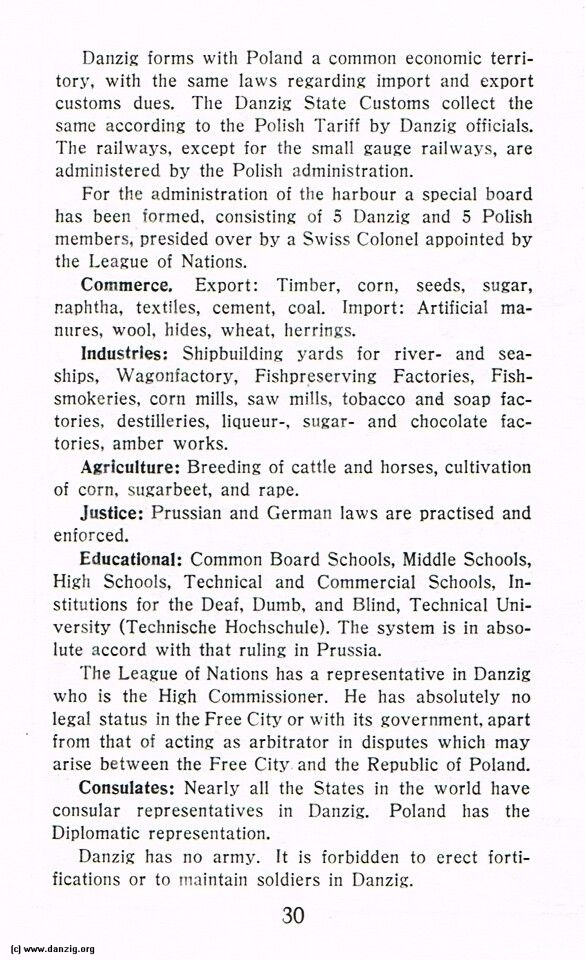
Danzig forms with Poland a common economic territory, with the same laws regarding import and export customs dues. The Danzig State Customs collect the same according to the Polish Tariff by Danzig officials. The railways, except for the small gauge railways, are administered by the Polish administration.
For the administration of the harbour a special board has been formed, consisting of 5 l)anzig and 5 Polish members, presided over by a Swiss Colonel appointed by the League of Nations.
Commerce. Export: Timber, corn, seeds, sugar, naphtha, textiles, cement, coal. Import: Artificial ma ntires, wool, hides, wheat, herrings.
Industries: Shipbuilding yards for river- and sea ships, Wagonfactory, Fishprescrving Factories, Fish smokeries, corn mills, saw mills, tobacco and soap factories. destilleries, liqueur-, sugar- and chocolate factories, amber works.
Agriculture: Breeding of cattle and horses, cultivationof corn, sugarbeet, and rape.
Justice: Prussian and German laws are practised and enforced.
Educational: Common Board Schools, Middle Schools, High Schools, Technical and Commercial Schools, Institutions for the Deaf, Dumb, and Blind, Technical University (Technische Hochschule). The system is in absolute accord with that ruling in Prussia. The League of Nations has a representative in Danzig who is the High Commissioner. He has absolutely no legal status in the Free City or with its government, apart from that of acting as arbitrator in disputes which may arise between the Free City and the Republic of Poland.
Consulates: Nearly all the States in the world have consular representatives ¡n Danzig. Poland lias the Diplomatic representation.
Danzig has no army. It is forbidden to erect forti fications or to maintain soldiers in Danzig.
Danzig Report Vol. 1 - Nr. 48 - July - August - September - 1985, Page 41.
Hits: 3095
Added: 17/06/2015
Copyright: 2025 Danzig.org

